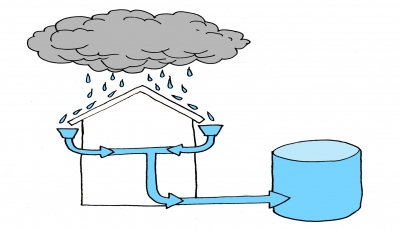Specialist Recommendations on Reclaim Waste Liquid Waste Removal and Industrial Waste Water Treatment
Specialist Recommendations on Reclaim Waste Liquid Waste Removal and Industrial Waste Water Treatment
Blog Article
The Crucial Duty of Appropriate Fluid Waste Elimination Strategies in Waste Monitoring
In the world of waste management, the relevance of using suitable fluid waste removal techniques can not be overemphasized. It is within this framework that the execution of sound liquid waste elimination techniques stands as a foundation of liable waste administration techniques.
Importance of Appropriate Fluid Waste Removal
Why is appropriate fluid waste removal important in maintaining ecological and public health and wellness criteria? Proper liquid waste removal is necessary for safeguarding the atmosphere and maintaining public wellness requirements. Reclaim Waste liquid waste removal. Fluid waste, otherwise taken care of correctly, can position severe threats to ecosystems, water sources, and human health and wellness. Improper disposal of liquid waste can result in contamination of groundwater, surface water, and soil, triggering injury to marine life, plants, and possibly jeopardizing human populaces.
Ecological Benefits of Effective Techniques
Implementing effective fluid waste elimination methods not only safeguards the environment but additionally plays an essential role in keeping public wellness requirements. By using correct strategies, such as sophisticated filtering systems and responsible disposal approaches, the ecological benefits are significant. Among the main advantages is the avoidance of contamination of natural water resources. Inappropriate disposal of fluid waste can bring about pollutants seeping into the soil and ultimately getting to groundwater tanks, impacting both human health and ecological communities.
Furthermore, reliable liquid waste elimination strategies assist mitigate the danger of waterborne conditions. By making sure that harmful compounds are not launched into water bodies, the spread of conditions triggered by polluted water can be reduced. In addition, proper waste administration techniques add to the preservation of aquatic life. Toxic chemicals in fluid waste can have damaging results on freshwater and aquatic microorganisms, interrupting ecological communities and biodiversity.
Health And Wellness Ramifications of Inadequate Elimination
The destructive wellness implications related to insufficient fluid waste elimination highlight the essential value of proper disposal methods and effective management techniques. Improper elimination of fluid waste can cause the contamination of water sources, posing significant wellness threats to both human beings and wild animals. When fluid waste containing damaging chemicals, microorganisms, or other pollutants is not adequately removed and dealt with, it can leak into groundwater, rivers, and oceans, endangering the top quality of drinking water and aquatic ecosystems.
Direct exposure to infected water because of inadequate fluid waste elimination can lead to various health issue, including gastrointestinal ailments, skin infections, respiratory system problems, and much more serious conditions such as body organ damage or neurological problems. Furthermore, the launch of unattended fluid waste into the setting can contribute to the spread of waterborne illness, producing public health situations that require substantial sources to attend to.
For that reason, executing proper fluid waste elimination methods is important to guarding public health and maintaining the stability of ecosystems. Liquid waste removal. By prioritizing reliable waste management methods, we can minimize the health dangers associated with insufficient fluid waste elimination and promote a healthier setting for all
Role in Avoiding Water Contamination
Efficient liquid waste elimination techniques play a critical function in preventing water contamination and securing public health. Incorrect disposal of liquid waste, such as without treatment sewer or industrial effluents, can cause the contamination of water sources, presenting serious dangers to human health and wellness and the setting. When liquid waste is not appropriately removed and dealt with, harmful compounds can permeate into groundwater, rivers, and oceans, polluting alcohol consumption water products and water ecosystems.
Contaminated water can bring a series of pollutants, including microorganisms, hefty steels, and chemicals, that have the prospective to create waterborne diseases, eco-friendly damages, and lasting health effects in human beings and wildlife. Appropriate fluid waste elimination strategies, such as wastewater treatment plants, septic systems, and industrial effluent treatment facilities, are necessary for eliminating or counteracting harmful contaminants before they can go into water bodies.
Making Sure Safe Disposal Practices
Making certain correct disposal techniques for fluid waste is important to safeguard water sources and public health from contamination dangers. Safe disposal methods include adhering to guidelines and regulations set forth by ecological firms to decrease the influence of fluid waste on the setting. Appropriate control and storage of liquid waste are essential to stop leaks or spills that could permeate right into the dirt and pollute groundwater sources. Implementing effective therapy approaches, such as filtering or chemical processes, before disposal can additionally dramatically lower the unsafe results of liquid waste on the atmosphere.

Final Thought
To conclude, correct fluid waste elimination techniques play a crucial role in waste administration by preventing ecological contamination and securing public health and wellness. Effective elimination methods make certain the risk-free disposal of fluid waste, lessening the negative influence on environments and water sources. It is essential for people and industries Reclaim Waste liquid waste removal to take on responsible techniques to reduce the dangerous effects of incorrect liquid garbage disposal.
In the realm of waste monitoring, the importance of employing proper liquid waste removal techniques can not be overstated. It is within this framework that the execution of sound fluid waste elimination techniques stands as a keystone of responsible waste administration techniques.

Report this page